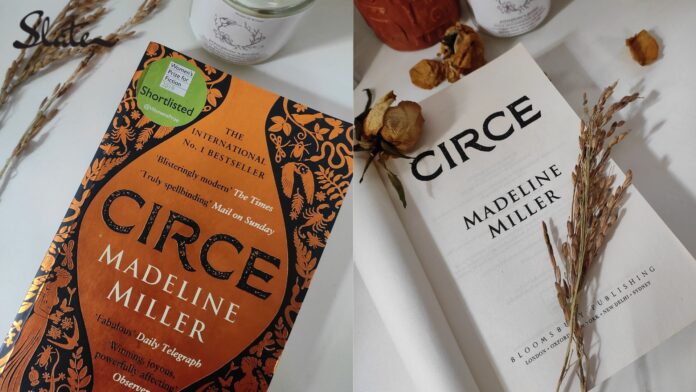By Eleanor A. Sangma
The Odyssey by Homer has been dubbed one of the greatest tales ever told by classicists. The epic poem runs 24 books long, and is centred around Greek hero Odysseus’ voyage back home after the Trojan War.
While the epic is packed with heroes, adventures and action, the one thing it is missing is the female voice.
In her 2018 book Circe, author Madeline Miller, has dug deep into the trenches of Homer’s poems, monolithic and androcentric, to unearth a beautifully crafted story based on the female experience.
The obsidian walls of her father’s castle can hardly be considered home to Circe, the titular character. She is neglected by her own parents, Titan God Helios and ocean nymph Perse, and looked down upon by the rest of the family.
Circe is ultimately exiled from her father’s home and forced to spend the rest of her days on the island of Aiaia, on charges of using magic.
Contrary to the Greek epics, where male heroes are often depicted as invincible and flawless, Miller’s Circe is a complex character full of flaws and imperfections. The goddess is naïve, full of rage and is prone to fatal errors. She is slow to forgive and even slower to forget.
Amongst people who are familiar with these myths, Circe has an extremely bad reputation. Known mostly for turning men into pigs, she has been called a mere man hater, a villain for the sake of being one. Many fail to question the reasoning behind that narrative.
In the reimagined story, Circe uses her power to protect herself against men who physically assault her. The event serves as a striking illustration of courage of a woman. She is labelled a monster still, in tune with the age-old tradition of crucifying women who fight for their rights.
An anti-hero in her own right – yet, Circe guides soldiers to safety and travels across the seas to help a sister who has never really considered her family. These traits are what makes her human, which is a rarity in the depiction of women in media. The complexities of women almost never make it into the rhetoric, because they are rarely allowed to showcase the same within a society that expects them to only be(have) a certain way – either as a nurturer or destruction personified, with no room for the grey.
Solitude is another aspect that women can hardly call their own. Often a daughter, mother and wife, women are expected to live their lives in connection to everyone around them.
Building an identity of one’s own, even in today’s society, is a luxury for many.
Circe is banished from society with the intention to cut her off from everything that would help her grow into her own person. Rather than giving into their expectations, she grows into a powerful sorceress who makes a home out of her little island. Removed from the realm of the divine, where she has never had a place, she finds herself amongst the wildflowers.
This serves as a reflection of our own world, where women are capable of success untold without the burden of societal expectations. A woman’s sense of self often gets distorted by the voices telling her who she should be and what she can and cannot achieve in life. Solitude, therefore, is the path that leads to one’s true identity, in the same way Circe meets herself in her own exile.
After all, wildflowers bloom with grace without human interruption.
Circe is one of the most powerful witches in Greek mythology. Witches represent an anomaly, a breaking away from the norms surrounding the idea of being a woman. Witches, to a large extent, represent the anxiety surrounding female autonomy and power as the society does not have any control over them. Circe, in Homer’s tale, can be considered a manifestation of the said anxiety.
The term ‘witch’ has been used for ages as a way to demean and supress women in particular, in both social and political spheres. Exhibit A, women politicians being branded as witches during elections, and ‘witch hunt’ being thrown around casually on social media.
Over the recent years, however, women have reclaimed the moniker and made it their own. Rather than the notion of antagonism it has always been attached to, it has become a symbol of female empowerment. The witch poses a challenge to patriarchal myths as an outsider with powers unfathomable.
In the opening line, Circe says, “When I was born, the name for what I was did not exist.” From not knowing her place in her father’s house, to finding a home in her own self, Circe is the portrait of a woman quietly rising against all odds.
Miller accomplishes with Circe, the rewriting of patriarchal narratives through a story that is universal and relatable to many. It is not just the tale of one witch, but this story belongs to one and all.


